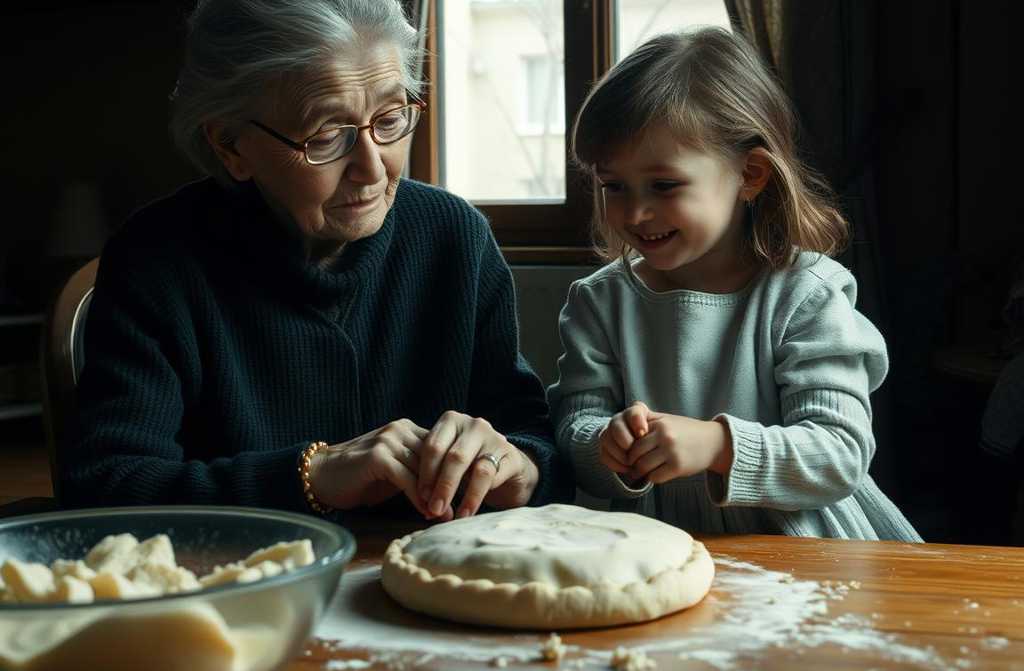The Grand Prize
Margaret Whitmore was widowed at thirty-two, left with two children: a son, Edward, and a daughter, Beatrice.
She forbade herself from thinking of love again. All her unspent affection poured into Edward, her eldest. In himquiet, obedientshe saw her future support.
Beatrice, however, took after her fatherdreamy, impulsive, with a stubborn fire in her eyes. She refused to bend to the harsh rules of her mothers world. Their conversations often turned to clashes.
“You must think of the future, not these silly poems!” Margaret would snap, snatching the notebook from her daughters hands.
“And what future? Working in a factory like you? Just surviving?” Beatrice shot back.
Edward, meanwhile, basked in adoration. His mistakes were forgiven, his small victories treated as triumphs. He learned quickly: his mother was always on his side. She would do anything for himas long as he kept her happy. He wasnt cruel. Just convenient.
Beatrice, worn down by the cold war at home, left at eighteen. She studied teaching, moved into a dorm, called rarely. Each visit ended in shouting.
Then she vanished.
When neighbors asked, Margaret would stiffen, avert her eyes. Edward merely shrugged. “She hated it here. Let her deal with her own mess.” He was married now but still visited every Sundayfor roast dinners, packed leftovers, and a little extra cash “for expenses.”
Five years passed.
One day, Beatrice appeared on the doorstep. A small girl clutched her skirt. Beatrice herself was thin as a shadow, coughing like her ribs might shatter.
“Whats this?” Margaret asked, icy, eyeing the child.
Beatrice had hidden her pregnancy, her daughter. Knew her mother would never approve. Worked two jobs, starved, until her body gave out. Doctors gave her months, if that. Someone had to take little Emily.
And so the circle closed. Beatrice returned to the threshold shed once fled.
Margaret took them innot from love, but duty. “What will people say if I turn them away?”
They lived in the smallest room. Beatrice faded. Emily, thoughlike a weed cracking pavementbegan to pry open her grandmothers stony heart.
Margaret found this child didnt fear her. Trusted her. Loved her. Emily brought her scribbled drawings”for Grandma Maggie”hugged her each morning, curled up in her bed after nightmares.
Beatrice died quietly, as if shed never lived.
Now the flat held two women: one with everything behind her, one with everything ahead.
And then, the ice cracked.
Margaret, whod spent her life fearing weakness, found it in herself. She taught Emily to bake scones, told family stories (omitting the fights), wept into her pillow, knowing how cold shed been. Love for her granddaughter was painful, latepartly penance.
Edward hated it.
“Mum, youll spoil her!” he grumbled, watching her buy Emily a new dress. “Were not made of money.”
“Ill spend my own how I like,” Margaret said, steel in her voicefor him, for the first time.
Years passed. Emily grew into the one person Margaret couldnt live without. Edward visited less, his trips mere formalities. Still, he was certain the flat and the cottage were hishis niece was “no proper heir.”
Margaret noticed. Saw his appraising glances, heard his hints after a drink”best get the paperwork sorted.” Her heart ached for him. For the boy who never grew up.
Her decision came quietly. No will to spark a feud. Something subtler.
She took Emily to the bank. Transferred her savings. Not a fortunejust a lifes careful hoarding, for a rainy day that never came.
“Gran, why? I dont need it!”
“Hush,” Margaret said. “This isnt for you. Its for me. So I know youll always have bread on your table. So youll never depend on them.”
She knew Edward would pressure Emily over the flat. The money would ensure she didnt leave empty-handed.
Edward lived in a cramped council flat on the citys edge, inherited by his wife, Linda. Money was tight; the walls still bore peeling ’90s wallpaper. His obsession: Margarets spacious flathigh ceilings, crown moulding. To him, it wasnt just property. It was justice. His reward.
Hed been the good son. This was his right. His ticket to a better life. Pay off debts, maybe save.
When the solicitor explained Emily had equal claim, Edward was stunned. Hed assumed he and Beatrice were the only heirsand her share was his by default. Splitting it meant half his dream. Not enough.
So when inheritance was discussed, Edward transformed. His usual sullenness became sharp, furious.
“She has no right!” he roared, pacing. “This is my flat! Who does she think she is?”
Linda knitted silently. Shed heard it all beforehow Beatrice had ruined everything, then crawled back with a child in tow.
Edward measured everything in cost. Yes, Emily helped. But so did he! Monthly groceries, calling the plumber, Sunday visits!
What had Emily done? Lived there. She couldve been in care.
For six months, Edward planned his battle. Threats, legal consultations, warnings to Emily: “Pack your things, or Ill drag you through court.”
After one final ugly row”Ive got connections, youll get nothing!”Emily surprised them.
She invited Edward and Linda to dinner. Set the table, made Margarets favourites: that same pie, that same soup.
“Uncle Ed, Aunt Linda,” she said softly. “Ill sign over my share. The flats yours. Ive found a buyer for the cottageif you agree, Ill take that money and leave. For good.”
Silence. Linda stopped chewing. Edward stared as if shed gone mad.
“Youre joking. Thats a fraction ofwhy would I let you have the cottage?”
“Gran wanted me to have a start. The cottages worth much less, isnt it? You dont need it. Take the deal. I wont fight.”
She left the room. Edward sat, stunned. No battle. Hed won nearly everything.
The solicitor, expecting a lawsuit, was pleasantly surprised when they came to sign.
Emily, with Margarets savings and the cottage money, bought a small studioenough left for savings. She often recalled that day at the bank. Grateful her gran had freed her. From dependency. From family like this.







